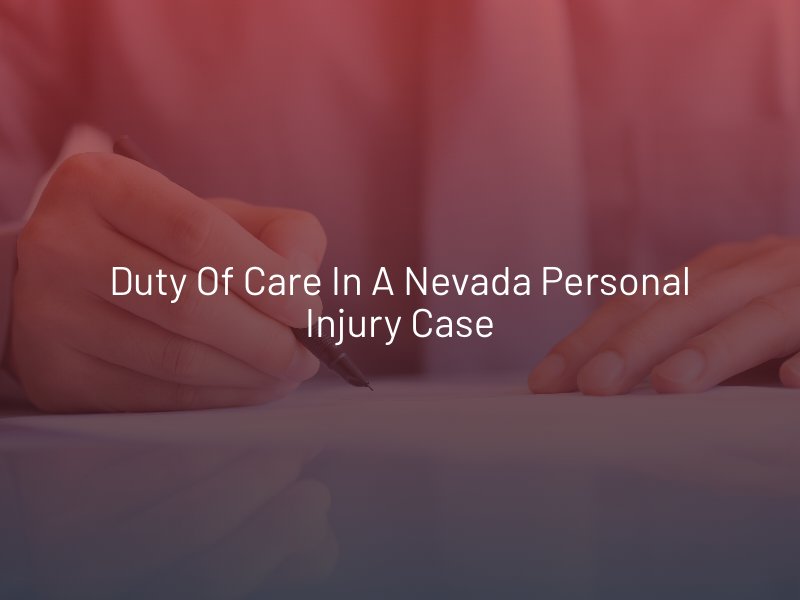Duty of Care in a Nevada Personal Injury Case
To hold another party responsible for a personal injury in Nevada, you and your Las Vegas personal injury lawyer must be able to prove that their negligence is what caused it. However, for another party to be considered negligent, they must have owed the plaintiff (victim) a duty of care.

What is Duty of Care?
A duty of care refers to an individual’s legal obligation to exercise “reasonable care” that another ordinary person would in the same scenario. It separates a preventable accident from an unavoidable one. The duty of care a person owes will vary depending on the facts of each case and what a “reasonable” person would have done in the same situation. Additionally, negligence-based personal injury cases can only succeed if the defendant owed the plaintiff a duty of care when the injury occurred.
Examples of Duty of Care
Here are a few examples of parties that owe others a duty of care:
Drivers
Drivers owe others on the road a duty of care to follow traffic laws, such as obeying the speed limit, stopping at red lights, or using turn signals.
Property Owners
Property owners have a duty of care to those who come onto their premises. However, the length a property owner must go to protect visitors generally depends on the setting and visitor’s status. For example, a trespasser will receive no care, while customers at a retail store must generally be provided a high level of care.
Medical Professionals
All healthcare providers, such as doctors, nurses, and hospitals, owe a high duty of care to patients to possess the same training and skills, as well as extend the same degree of care as other healthcare providers in their community.
Manufacturers
Companies that make and sell products have a duty of care to the consumers who buy and use them. This includes ensuring products are reasonably safe when used as intended and warning consumers of potential dangers.
Commercial Trucking Companies
Commercial vehicle companies owe a duty of care to their employees and people on the road. Included in their duty is ensuring drivers are licensed, properly trained, follow federal regulations regarding the number of hours drivers can consecutively be on the road, vehicles are inspected and maintained, and more.
Breach of Duty of Care
If it is determined that another party did owe you a duty of care in a given situation that resulted in your injury, you must then demonstrate how the defendant violated their duty of care. In other words, the defendant failed to behave how a reasonable person would have under the same circumstances. Therefore, they are responsible for your injuries. Some examples of breach of duty of care include:
- A driver running a red light and crashing into your vehicle.
- A property owner failing to fix a known hazard (e.g., cleaning up a spill on the floor that has been there for two hours).
- A manufacturer distributing a defective product.
- A commercial truck company allowing truck drivers to violate federal law and drive more hours than allowed without a break.
Once you establish that another party owed you a duty of care and that they breached it, you can hold them accountable for an injury. However, you must also have evidence that your injury is directly linked to their breach of care, and that you suffered losses as a result.